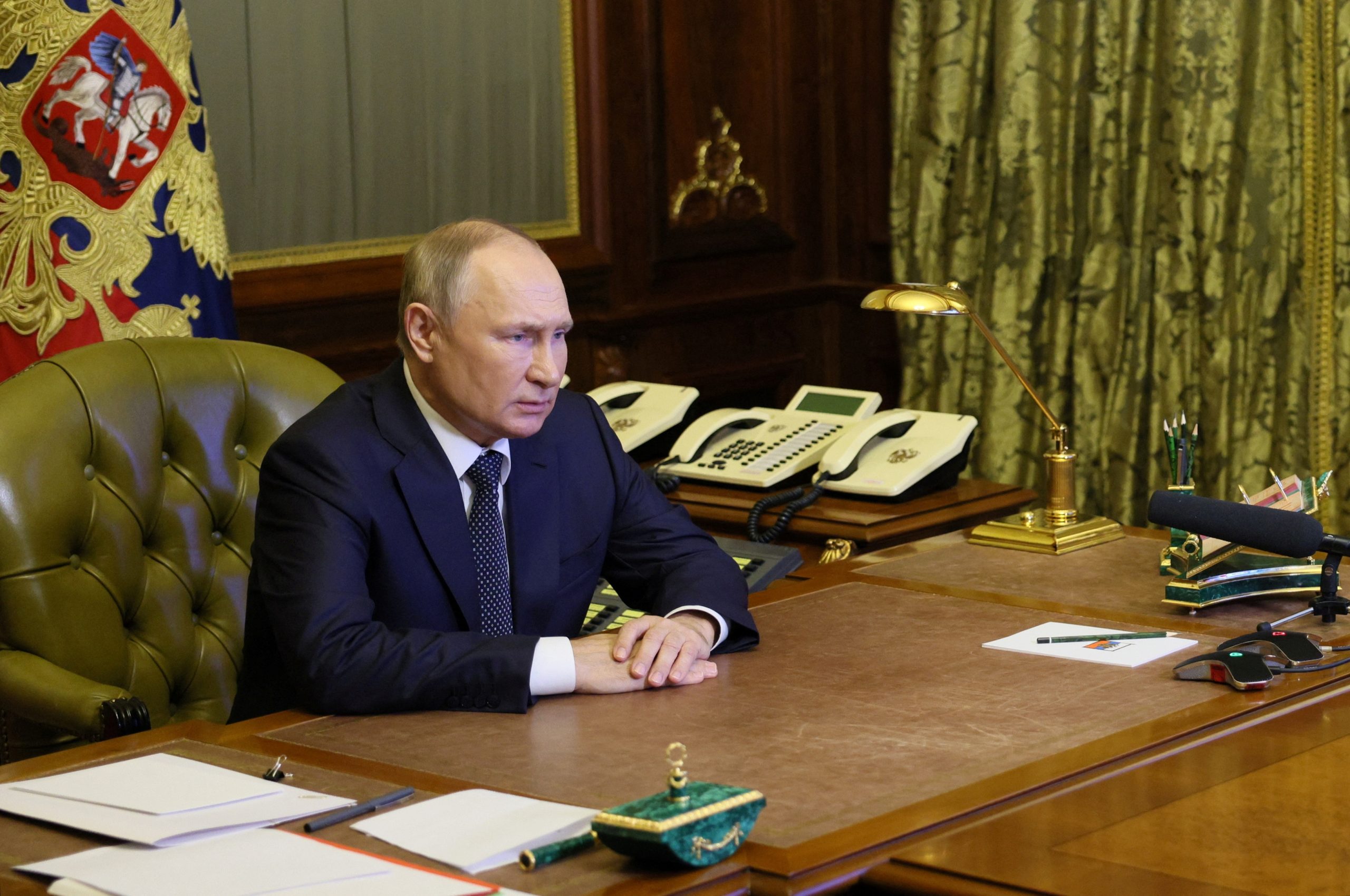
Chris Lange, FISM News
[elfsight_social_share_buttons id=”1″]
On the same day Russia’s foreign minister said President Putin is open to resuming peace talks with the West that ended in March, Ukrainian President Volodymyr Zelenskyy announced a three-pronged peace proposal that pointedly excludes the Russian leader.
Zelenskyy on Tuesday laid out the new proposal which includes the West providing weapons to help Ukraine create a defensive “air shield,” enhanced protections of Ukraine’s territorial sovereignty, and the imposition of stronger sanctions and political isolation on Russia over its invasion.
The Ukrainian leader unveiled the plan during an emergency virtual summit of the G7, called after the Kremlin unleashed a barrage of attacks throughout Ukraine on residential areas and key infrastructure Monday and Tuesday. Zelenskyy also warned that Putin is planning to escalate attacks further, pointing out that Moscow has ordered an additional 2,400 Shahed drones from Iran.
“This possibility is a threat to all of us,” Zelenskyy said before presenting his new “peace formula,” according to a USA Today report.
Following Zelenskyy’s remarks, the Kremlin reversed course on its latest assessment of peace talks Wednesday, walking back remarks made the previous day by Foreign Minister Sergei Lavrov, who said that Putin was open to a meeting with President Biden at next month’s Group of 20 Bali summit. Kremlin spokesman Dmitry Peskov on Wednesday said that “neither the Russian nor American side put forward any initiatives about organizing bilateral contacts” during the summit.
Peskov also denounced President Biden’s warning that Russia’s potential use of nuclear weapons in Ukraine would result in a “horrible outcome,” calling Biden’s remarks “harmful and provocative” Western nuclear rhetoric.
“We express our daily regret that Western heads of state, in the United States and Europe, engage in nuclear rhetoric every day. We consider this a very harmful and provocative practice,” Peskov stated.
Putin has said he won’t hesitate to use “all means available” to protect Russian territory, including illegally annexed territories in Ukraine. The statement was widely viewed by Ukraine and the West as a continuation of Putin’s thinly veiled threats to use nuclear weapons, particularly in the face of Ukraine’s successful efforts to reclaim villages Russia has attempted to absorb. Despite Putin’s public threats, Kremlin officials are saying that reports concerning Moscow’s intention to use nuclear weapons are merely false claims made by the U.S. and its allies to advance Western rhetoric.
Zaporizhzhia nuclear plant loses critical external power
External power vital to operating safety systems at the Russian-occupied Zaporizhzhia nuclear power station has been completely cut off for the second time in under a week. International Atomic Energy Chief Rafael Grossi called the development “deeply worrying.”
Grossi met with Russian President Vladimir Putin on Tuesday to discuss the urgent need to stabilize the plant, which has sustained heavy damage amid fighting around the facility that has included nearby missile strikes. He said on Wednesday that IAEA monitors at the site indicated that critical nuclear safety and security systems are once again only operating on backup diesel generators.
“Now more than ever, during these extremely difficult times, a protection zone must be established around #ZNPP. We can’t afford to lose more time. We must do everything in our power to help ensure that a nuclear accident does not happen during this tragic conflict,” Grossi said in a tweet.
Ukraine’s state nuclear operator Energoatom said on the Telegram social media platform that the Dniprovska substation in the Dnipropetrovsk region to the north of Zaporizhzhia plant was damaged in a Russian missile strike, shutting down communication to the plant, which triggered the diesel generators to kick in.
Last month, Energoatom chief Petro Kotin told The Associated Press that the Zaporizhzhia plant could sustain operations for only 10 days under diesel power, describing the backup generators as “the station’s last defense before a radiation accident.”
Elsewhere, Ukraine’s military command said that, as of Oct. 11, its forces liberated five additional settlements in the southern Kherson region, including Novovasylivka, Novohryhorivka, Nova Kamianka, Tryfonivka, and Chervone.
Eight arrested in connection to Crimea bridge bombing
Russia’s Federal Security Service on Wednesday announced the arrest of eight people – five Russians and three Ukraine and Armenian citizens – on charges stemming from the bombing of the Kerch Strait Bridge between Russia and Crimea. Russian officials have called the attack an act of terrorism and blamed the Ukrainian secret service for the explosion.
A truck loaded with explosives detonated on the bridge on Saturday, killing four people and causing one of the bridge’s two automobile links to collapse.
The Kerch Bridge, said to have cost billions to construct, was erected following Russia’s 2014 annexation of Crimea. Since then, it has served as a critical thoroughfare for supplies and transportation.
Ukraine cheered the crippling effects of the bombing but has not claimed responsibility for the incident. The explosion is among a series of major blows to Russian President Vladimir Putin in the nearly eight-month war.
